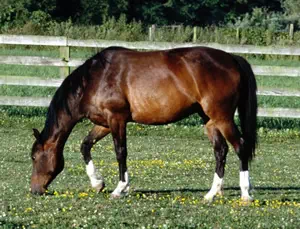|
 HAWAII HAWAII
Carcass Disposal State Regulations
General
Depending on circumstances, large animal carcass disposal may be regulated by a state's solid waste, medical waste, agriculture, or emergency management regulations. If your state does not provide specific guidance or regulations relating to large animal carcass disposal, check with your local health department, or city/county laws and ordinances.
In addition, during emergency situations and disasters (e.g., blizzards, floods, hurricanes, mass die-offs, etc.), consult with your local emergency officials, your state emergency planning agency, or the state veterinarian, to determine approved methods of carcass disposal.
Applicable Agencies and Regulations for Hawaii
Hawaii Department of Health
Address: 1250 Punchbowl St., Honolulu, HI
Contact Information (Solid and Hazardous Waste Management Branch): http://hawaii.gov/health/environmental/environmental/waste/index.html.
Rules and Regulations: Hawaii Administrative Rules, Title 11, Department of Health, Chapter 58.1, Solid Waste Management Control, Subchapter 6, Section 11-58.1-61. Disposal of animal carcasses is the responsibility of the owner upon whose land the carcass is found. Disposal should be on-site and immediate by burial, or other methods approved by the director. Disposal options addressed, include:
- burial (on-site, immediate and covered by at least 2 feet of compacted earth), and
- other methods (methods approved by the director).
More Information
Minimizing Pollution Risk from Livestock Operations (Hawaii Cooperative Extension Service, College of Tropical Agriculture and Human Resources, University of Hawaii at Manoa, 2000). Describes best management practices to dispose of dead animals and offal, as well as information on manure management. Disposal options addressed, include:
- landfilling (approved landfill is low risk, best used for small animals),
- burning (incineration is low risk, more commonly used for larger animals), and
- composting (Composted properly is moderate risk. Must obtain a permit from the Hawaii Department of Health. Contact your local CES livestock agent or the Solid Waste Management Branch of the Hawaii State Department of Health for specific requirements.)
The Cornell Waste Management Institute (CWMI) maintains a database of carcass disposal state regulations promulgated by state environmental, agricultural and other agencies. There may be additional information on this site, not found on VetCA, that can be helpful to veterinarians, ranchers and farmers. Click here to access the CWMI information for Hawaii.

Choose another state
|

